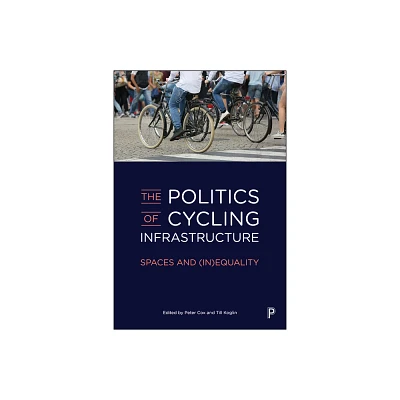Home
Politics Recoded: The Infrastructural Organizing of Code for America
Loading Inventory...
Barnes and Noble
Politics Recoded: The Infrastructural Organizing of Code for America
Current price: $45.00


Barnes and Noble
Politics Recoded: The Infrastructural Organizing of Code for America
Current price: $45.00
Loading Inventory...
Size: Paperback
*Product Information may vary - to confirm product availability, pricing, and additional information please contact Barnes and Noble
The first detailed history of Code for America that examines how democratically designed government systems can collectively improve technology’s impact on society.
For decades, tens of thousands of volunteers and employees of Code for America have taken a different path to institutional change: through designing and implementing infrastructure. In
Politics Recoded
, Aure Schrock employs a robust, organizational ethnography to analyze how Code for America’s infrastructural organizing changed how politics get exercised, showing how we citizens can work directly with the government on projects to improve our collective livelihoods. Drawing from theories of organizing, social infrastructure, racialized organizations, technical cultures, and intersectionality, Schrock argues that our “post-techlash society” must no longer presume that corporate platforms or social networks can level social inequities.
An underrecognized yet influential organization, Code for America emerged from a tech culture background that prioritized networks and publicity over the long, slow work of institutional change. But its evolution demonstrates how to push beyond the fundamental flaws of tech-forward organizing. This, the first history of Code for America, shows how promoting agentic citizenship and brokering in empathy let the organization influence policy at all levels of government—and demonstrates why we need to bolster institutions to ensure that everyone is justly represented and receiving the benefits. Appealing to those in political science, communication, and information studies,
will empower practitioners and activists to revolutionize technological design and participate in alternative forms of civic engagement.
For decades, tens of thousands of volunteers and employees of Code for America have taken a different path to institutional change: through designing and implementing infrastructure. In
Politics Recoded
, Aure Schrock employs a robust, organizational ethnography to analyze how Code for America’s infrastructural organizing changed how politics get exercised, showing how we citizens can work directly with the government on projects to improve our collective livelihoods. Drawing from theories of organizing, social infrastructure, racialized organizations, technical cultures, and intersectionality, Schrock argues that our “post-techlash society” must no longer presume that corporate platforms or social networks can level social inequities.
An underrecognized yet influential organization, Code for America emerged from a tech culture background that prioritized networks and publicity over the long, slow work of institutional change. But its evolution demonstrates how to push beyond the fundamental flaws of tech-forward organizing. This, the first history of Code for America, shows how promoting agentic citizenship and brokering in empathy let the organization influence policy at all levels of government—and demonstrates why we need to bolster institutions to ensure that everyone is justly represented and receiving the benefits. Appealing to those in political science, communication, and information studies,
will empower practitioners and activists to revolutionize technological design and participate in alternative forms of civic engagement.


















